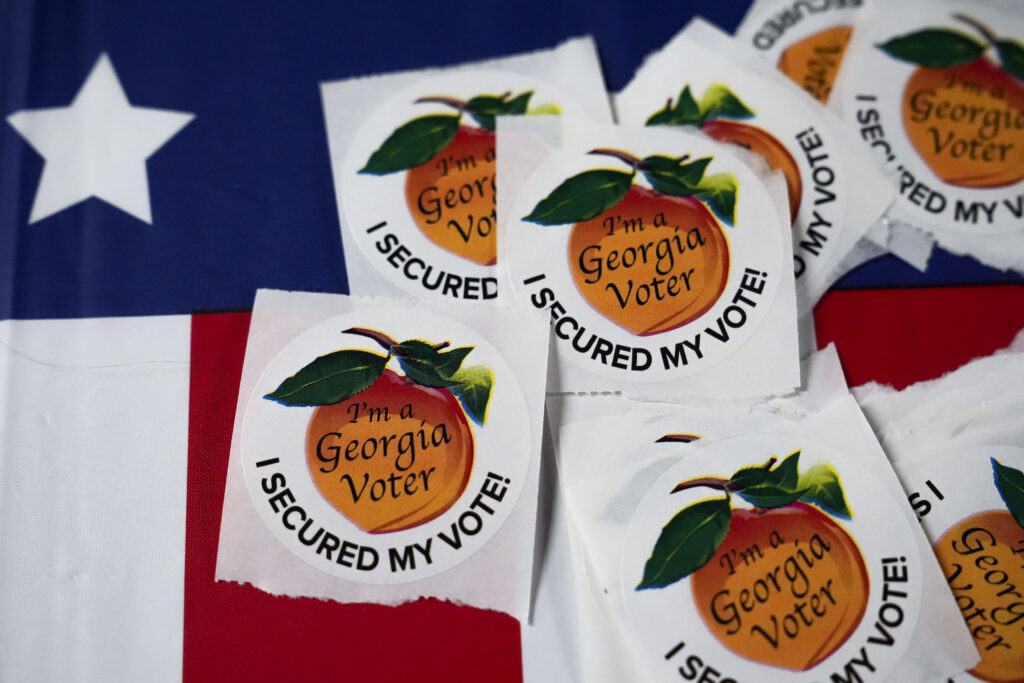
The Georgia Supreme Court ruled that the Republican-led State Elections Board (SEB) exceeded its authority in passing a handful of controversial anti-voting rules last year.
The unanimous decision by the state’s highest court upholds a lower court’s ruling that temporarily blocked several rules passed by the SEB last year, including ones requiring counting ballots by hand and for voters to provide a signature and ID at ballot drop boxes.
“The SEB can pass rules to implement and enforce the election code, but it cannot go beyond, change or contradict the (the law),” Chief Justice Nels Peterson wrote in the court’s order.
Georgia’s GOP-led SEB passed 10 new voting rules between August and September 2024, less than 50 days before the general election. Among them:
- Hand Count Rule: Required election officials to hand count ballots on Election Day.
- Reasonable Inquiry Rule: Required local election officials to conduct a “reasonable inquiry” into the completeness and accuracy of election results before certifying them.
- Examination Rule: Allowed individual county election board members to examine all documents related to an election before certifying the results.
- Drop Box Rule: Required voters to provide a signature and photo ID when dropping off an absentee ballot at a drop box.
- Surveillance Rule: Requires election officials to install video surveillance at all drop boxes and invalidate ballots from drop boxes without video surveillance.
- Poll Watcher Rule: Expands the areas where poll watchers can be positioned.
- Daily Reporting Rule: Adds further requirements to what is already required in daily absentee ballot reports submitted by county boards of registrars.
- Reconciliation Rule: Requires either each county board of elections or election workers to verify the total ballot count against tabulation tape from each individual ballot scanner in the county.
- Reconciliation Reports Rule: Mandates counties to publish online reports detailing the difference between the number of total ballots cast and the total number of voters reported voting in each precinct.
- Recorded Count Rule: Requires an election worker and two witnesses to record the ballot count from the tabulation tape in every ballot scanner in a given polling location.
The SEB’s new rules were met by a barrage of lawsuits from voters, local election officials, county boards of elections, the Georgia Democratic Party and the Democratic National Committee, challenging the board’s authority. In October, a Fulton County superior court judge permanently blocked seven of the SEB’s rules — the Hand Count Rule, Daily Reporting Rule, Poll Watcher Rule, Examination Rule, Reasonable Inquiry Rule, Drop Box Rule and Surveillance Rule.
But the Republican National Committee (RNC) — who intervened in the case — appealed the ruling to the state’s highest court. The seven election rules remained blocked while the Georgia Supreme Court heard oral argument in the case.
Per the court’s ruling, four of the board’s rules violated Georgia law — including the Hand Count Rule and Reasonable Inquiry Rule. The court did not rule on the Poll Watcher Rule and the Daily Reporting rule. Instead, they sent the case back to the lower court to reconsider standing to challenge these rules. But the court did decide that the rule that requires the surveillance of dropboxes is legal.
Pro-voting groups hailed Georgia Supreme Court’s decision as a win for voters in the Peach State. The voting rights advocacy group Alliance For Justice called the ruling “a clear win against GOP attempts at voter suppression.”
The ACLU wrote that, “this needless rule would have injected chaos and confusion into Georgia elections.”
